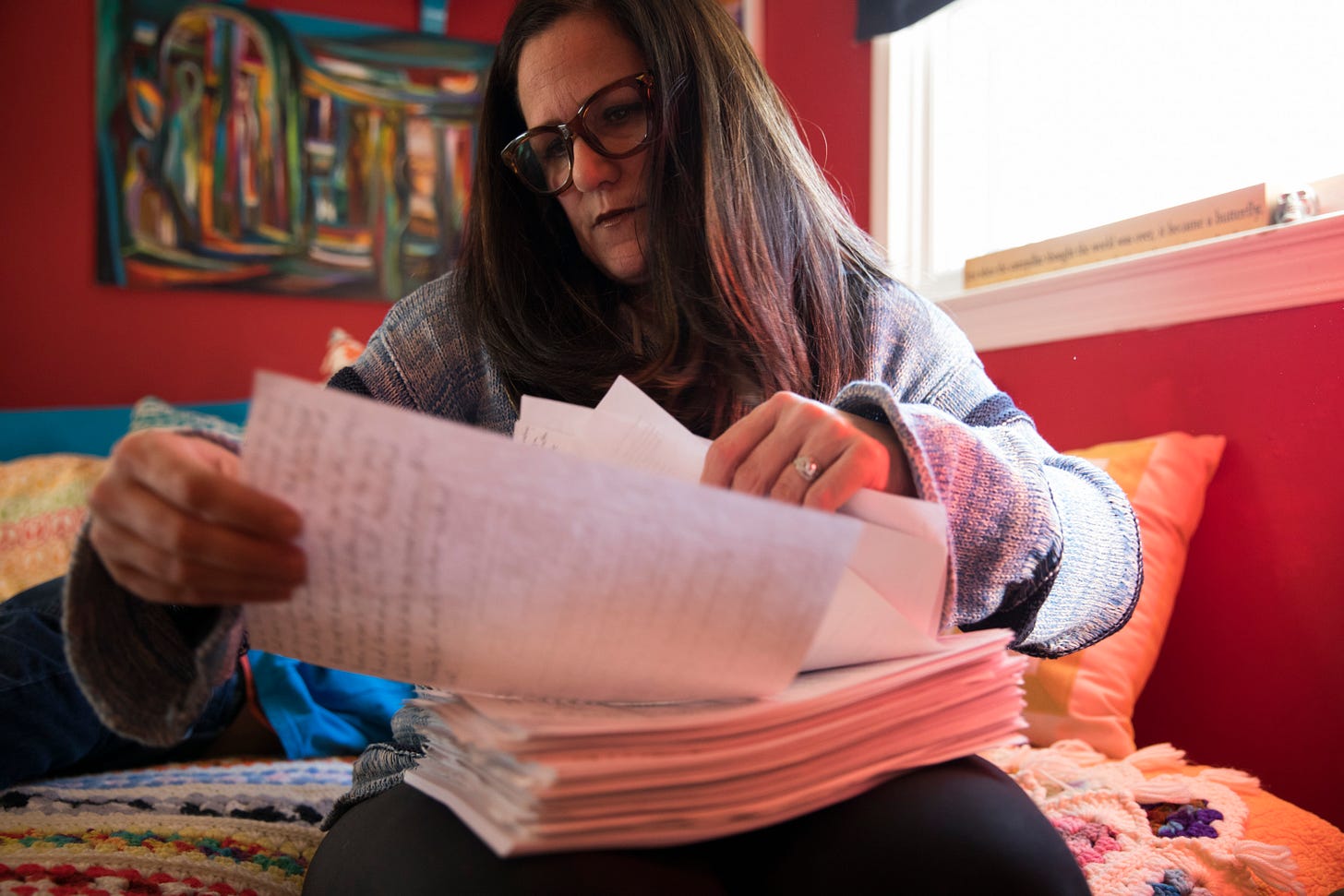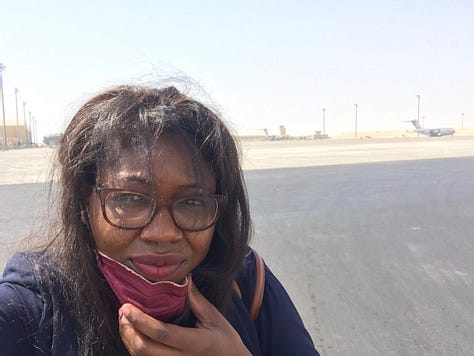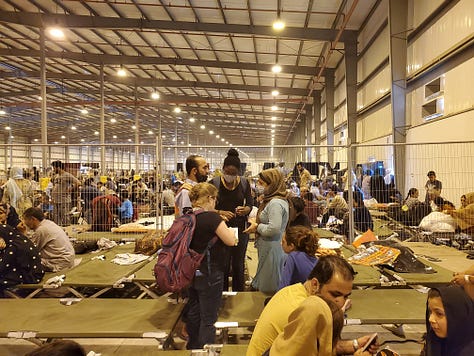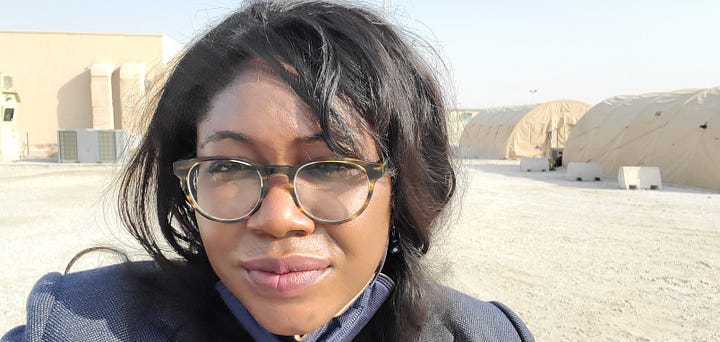Diversity of News Perspectives, Faulty Memories and Teacher Immunity Laws
Books, children, career moves and the odds...
The Dystopic State of News

Last week, I observed a few newsworthy events that I would have advocated to cover as a local reporter but they seemed to slip through the cracks with little scrutiny.
One was a bill Maryland lawmakers convened to discuss that would exempt teachers from civil liability for injuries or property damage caused while intervening in student altercations, provided their actions were reasonable. The testimony for this bill was overwhelmingly positive, and it advanced to the governor’s desk. However, the only coverage I could find was an article from last year on the subject.
In 2019, one of the more significant stories I covered, both locally and nationally, focused on the use of seclusion and restraint on students, particularly those with special needs such as autism. The story highlighted the apparent lack of accountability concerning the use of force by educators. Since then, similar stories nationwide have illustrated that the issues of educator intervention and liability merit further exploration, which concerns me given the current dearth of coverage on issues like the Maryland bill and, consequently, the lack of public debate on the matter.
Maryland is certainly not a news desert. Yet, as local and national news organizations across the country downsize, I am concerned that important topics requiring detailed analysis and exposure might fade into obscurity.
In 2018, Springer published my thesis titled "International Education and Global Communication Trends" as Chapter 14 of the book The Future of Higher Education in the Middle East and Africa. This publication followed my presentation at a global academic conference in the United Arab Emirates. My work surveyed and analyzed global education development trends of that time and advocated for increased accountability through transparent media sources.
In essence, we need more in-depth coverage of topics like education to ensure accountability to the public. As newsrooms continue to reduce their staff, this need becomes increasingly critical.
But what is the solution?
Newsrooms require funding to produce this type of work. However, there is concern that paywalls are restricting access to essential information for the public. With governments hesitant to intervene, are billionaires our only recourse?
On a lighter note for a somber topic, in 2019, I wrote an unpublished dystopian fiction book of over 60,000 words about a future world where information was controlled solely by elite forces aiming to manipulate the public. The romantic subplot still needs polishing, but it is good.
Faulty Memories Mean More Interviews
I've read a lot about how our minds can misremember the details of events. Malcolm Gladwell (yes, him again) has a compelling episode in his Revisionist History podcast series about this, titled "Free Brian Williams," where he argues that the famous news anchor did not intend to lie about his experience in Iraq in 2013 on David Letterman's show, but simply misremembered 10-year-old details. And honestly, that is quite plausible. Details are tricky for nonfiction writers.





I am currently writing a section of my book focused on controlling narratives. For this, I have decided to revisit my experience as a public diplomacy officer during the Afghan evacuation in Qatar. I remember my role and the experience from my perspective, but now I'm gathering stories from others who were on the ground during that period to try and avoid this faulty memory effect.
I struggled with my role in Qatar. The end of the war in Afghanistan was history in the making, but I would have captured it in a very different way as a journalist. I remember hearing other officers complain about the curated coverage not reflecting their experiences. It was a chaotic and confusing period, but it's something that the history books should record as accurately as limited perspectives will allow.
I imagine the need to conduct interviews and fact-check is one of the reasons nonfiction writing can take longer than fiction in some cases. But boy, the stories are fascinating.
What I am reading…
Yes, Newsrooms Suffer From a Lack of Diversity in Perspectives. But No, Affinity Groups Are Not the Problem.
Last week, Uri Berliner, a white male business editor at NPR, wrote a scathing essay about diversifying newsroom perspectives. He noted that the outlet had become less diverse in its views by overwhelmingly adopting liberal language and viewpoints in its choice of topics and the angles from which they are covered.
As a Black woman who has worked in public radio and produced stories with NPR, I agree with the general premise of his assessment. The media needs to reflect the diversity of viewpoints in America, and it is struggling to do so as the goalposts consistently appear to shift. However, I would argue that it is more complicated than Uri's depiction. The 1970s, which Uri describes as a time of "reliable journalism and gorgeous audio pieces," were also times when minority voices were almost nonexistent in mainstream media.
It was a period when Black, brown, and other communities rarely saw their stories or perspectives fairly and accurately portrayed by many mainstream media outlets. Our lives and experiences were documented through a white lens. Now, as news organizations strive to include our voices, diverse people with diverse perspectives (we are not a monolith, as I must remind) in addition to the diversity of white perspectives, achieving balance is not always straightforward.
In 2020, as newsrooms struggled to cover police brutality and systemic racism globally, the objectivity of Black journalists and their ability to cover these stories was consistently questioned—as if white journalists did not also possess some sort of interest or possible bias on the topic. As a minority woman, I have seen colleagues of color at various news organizations filter their coverage through white, male bosses—watching them kill and question the newsworthiness of stories that reporters believe are important to their communities. Minorities still struggle to see the breadth and depth of their perspectives reflected in mainstream media. And as white America’s political ideologies continue to fray, taking on more extreme positions, so do the ideologies within minority communities.
So no, affinity groups within your organization are not the problem, as Uri suggests in his essay. Affinity groups are meant to create a safe workplace where the diversity of opinion and concerns of the people, even as they juxtapose against the perspectives of other minorities within affinity groups, are considered. Just as a newsroom is a place to deliver facts to the world, it is also a workplace in America and must consider past and present policies that have made it difficult or unsafe for minority communities—regardless of the minority’s worldview.
There are many reasons mainstream newsrooms suffer from a diversity of thought—location, connection bias, unpaid internships, and more. And truly, as many in the journalism world know, newsrooms have struggled with trust long before their 2020 days of racial reckoning as Uri’s essay also suggests. Including Black, brown, trans, Jewish, and Palestinian voices doesn't mean excluding conservatives; not only do some of these groups also have conservative members, but it is the duty of news organizations to include them all.
So many direct and indirect influences shift news organizations towards certain ideologies. Yes, they need to consciously and consistently push against groupthink and towards a diversity of perspectives to have coverage that—while never perfect—will more accurately and fairly reflect America.
But nostalgia for a past where farmers happily listened to NPR while riding their tractors at sunrise, but Blacks and other minorities were not included, as Uri does in his essay, isn’t the answer. It’s not time to go back. It’s time to go forward. It’s time to dream of a more diverse audience with their smart devices listening to whatever shows or podcasts they feel meet their needs and showcase the broad spectrum of American life.
Subscribe and Share
I hope you found this newsletter helpful and engaging. Please share with any friends or family you think would be interested and feel free to buy me a coffee by subscribing if you got some use out of it.
Follow me on Instagram too!



